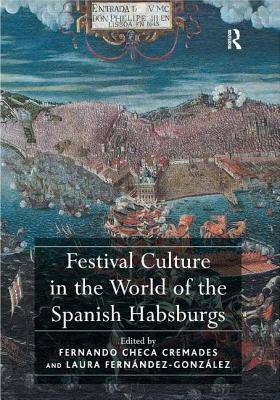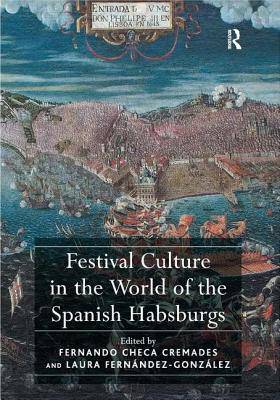
- Retrait gratuit dans votre magasin Club
- 7.000.000 titres dans notre catalogue
- Payer en toute sécurité
- Toujours un magasin près de chez vous
- Retrait gratuit dans votre magasin Club
- 7.000.0000 titres dans notre catalogue
- Payer en toute sécurité
- Toujours un magasin près de chez vous
Festival Culture in the World of the Spanish Habsburgs
Fernando Checa Cremades, Laura Fernández-González
Livre relié | Anglais
195,95 €
+ 391 points
Description
In recent years, there has been an increasing interest in Early Modern Festivals. These spectacles articulated the self-image of ruling elites and played out the tensions of the diverse social strata. Responding to the growing academic interest in festivals this volume focuses on the early modern Iberian world, in particular the spectacles staged by and for the Spanish Habsburgs. The study of early modern Iberian festival culture in Europe and the wider world is surprisingly limited compared to the published works devoted to other kingdoms at the time. There is a clear need for scholarly publications to examine festivals as a vehicle for the presence of Spanish culture beyond territorial boundaries. The present books responds to this shortcoming. Festivals and ceremonials played a major role in the Spanish world; through them local identities as well as a common Spanish culture made their presence manifest within and beyond the peninsula through ephemeral displays, music and print. Local communities often conflated their symbols of identity with religious images and representations of the Spanish monarchy. The festivals (fiestas in Spanish) materialized the presence of the Spanish diaspora in other European realms. Royal funerals and proclamations served to establish kingly presence in distant and not so distant lands. The socio-political, religious and cultural nuances that were an intrinsic part of the territories of the empire were magnified and celebrated in the Spanish festivals in Europe, Iberia and overseas viceroyalties. Following a foreword and an introduction the remaining 12 chapters are divided up into four sections. The first explores Habsburg Visual culture at court and its relationship with the creation of a language of triumph and the use of tapestries in festivals. The second part examines triumphal entries in Madrid, Lisbon, Cremona, Milan, Pavia and the New World; the third deals with the relationship between religion and the empire through the examination of royal funerals, hagiography and calendric celebrations. The fourth part of the book explores cultural, artistic and musical exchange in Naples and Rome. Taken together these essays contribute further to our growing appreciation of the importance of early-modern festival culture in general, and their significance in the world of the Spanish Habsburgs in particular.
Spécifications
Parties prenantes
- Auteur(s) :
- Editeur:
Contenu
- Nombre de pages :
- 322
- Langue:
- Anglais
Caractéristiques
- EAN:
- 9781409435617
- Date de parution :
- 28-10-15
- Format:
- Livre relié
- Format numérique:
- Genaaid
- Dimensions :
- 175 mm x 246 mm
- Poids :
- 951 g

Les avis
Nous publions uniquement les avis qui respectent les conditions requises. Consultez nos conditions pour les avis.






